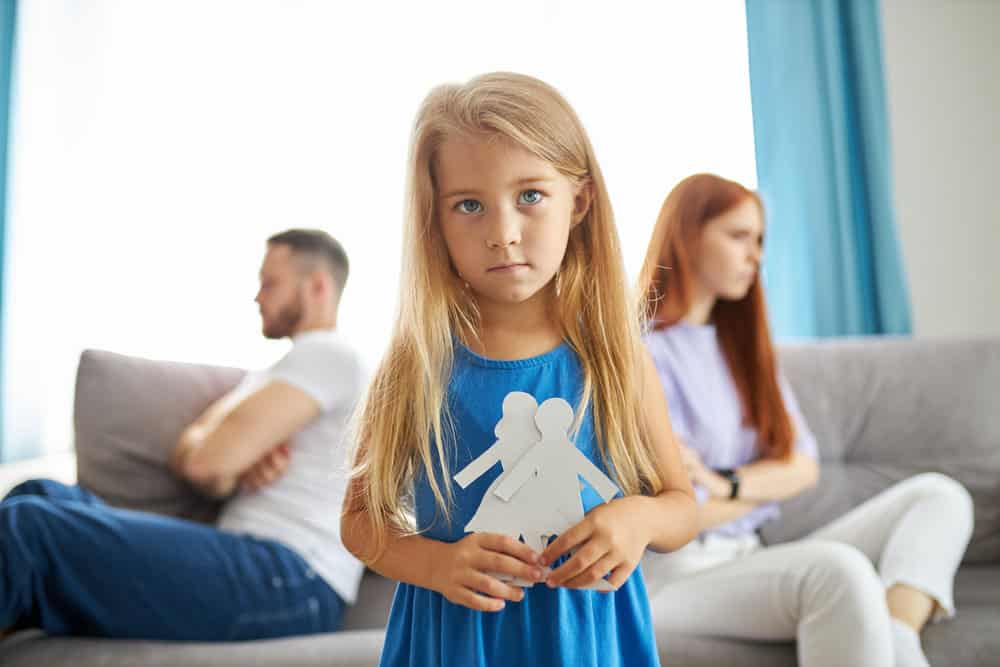Divorce is never an easy decision; it becomes even more complicated when kids are involved.
The concept of separation opens a floodgate of emotions that can be overwhelming for both grown-ups and the little ones. But one thing stands out above everything else, your kids’ happiness and well-being.
While making it through a divorce is tough, prioritizing your children should always be at the forefront of your decisions. Before you finalize your divorce, you must ensure your kids won’t be affected at any point.
So, here are eleven considerations for divorce with kids to help you get through this difficult terrain with care and compassion.
1. Open and Honest Communication
Open and honest communication with your children is extremely important when facing divorce. You have to tell your kids about your decision to part ways with your ex-partner in a suitable way.
Tailor your approach to their age and emotional maturity. Use simple language for younger children and provide more details for older ones.
Assure them that the divorce is not their fault and that both parents still care deeply for them. Keep the lines of communication open so they can ask questions or express their feelings whenever needed.
2. Professional Guidance
One of the most difficult aspects of divorce is the emotional and legal parts. Things can be much easier if you hire a competent child custody attorney who specializes in cases involving children.
With a legal attorney, you’ll get better guidance on legal matters related to custody and support. Additionally, involving family therapists or counselors can help your children process their feelings and provide you with tools to support them effectively.
3. Co-Parenting Strategy
After deciding to part ways, one of the first things you should do is to set up co-parenting strategies with your ex-partner.
Creating co-parenting strategy involves open communication, mutual respect, and a commitment to working together for the well-being of your children.
At this point, you must work together to determine custody arrangements, visitation schedules, and decision-making responsibilities for your children’s welfare. With consistency in co-parenting, you’ll be able to raise your children in a much better environment.
4. Maintain A Stable Environment
Children thrive in stable environments, so maintaining routines can provide a sense of security. Even amidst the changes that come with divorce, you must keep up with their routines.
This means keeping consistent mealtimes, bedtimes, and school schedules.
If possible, avoid making major changes like switching schools or moving to a new neighborhood during this time. A stable environment will be a haven for them as they navigate the unfamiliar divorce territory.
5. Keep Children Out of the Middle
Tensions can run high after filing for a divorce, but you must stay as calm as possible because it’s your responsibility to shield your children from conflicts.
Refrain from arguing with your ex-partner or engaging in confrontations in their presence. Besides, children should never be placed in the middle of adult issues.
When your children see conflicts and disputes between you two, it can have an everlasting impression on their minds. It can also cause anxiety, confusion, and mental disorders. So it’s better to avoid any arguments in front of your children.
6. Emotional Support
Divorce is an emotional journey for you and your kids. Family members, friends, and therapists; everyone can play a role in helping them through this difficult period. So you must make sure your children have a strong support system.
Help them express their feelings and let them know their emotions are valid. Let them know whether they feel sad, angry, frustrated, or confused, it’s okay to feel that way.
7. Consistent Parenting Styles
Although parenting styles may differ between households, try to align them as much as possible. Children can become confused and emotionally distressed when rules differ dramatically between homes.
You have to work together to implement discipline, routines, and values to reinforce a sense that both parents are on the same page.
8. Flexibility and Adaptability
As your children grow and their needs change, be willing to adapt your co-parenting strategy. Their interests, academic pursuits, and extracurricular activities will evolve.
So, you have to reassess the arrangements occasionally and adjust when necessary. This way, your kids will also understand your commitment to their well-being.
9. Manage Your Own Well-being
As a parent, your well-being directly impacts your children’s experience. Taking care of your mental and emotional health enables you to provide their needed support.
So don’t neglect your self-care because you have to be emotionally and physically there for your children. Seek therapy, engage in stress-relieving activities, and lean on your support network. When you’re in a good place, you can be a more effective source of stability and comfort for your children.
10. Focus on the Positive
While divorce is undoubtedly challenging, it can also bring about positive change. Discuss the opportunities for growth, learning, and new experiences that can arise from this situation. Encourage your children to see the silver linings and guide them to have a positive outlook even during difficult times.
11. Celebrate Milestones Together
Divorce can make your children feel lonely and undervalued. So the best way to prove them wrong is by celebrating milestones and doing activities together. This could mean attending school events, birthdays, or holidays as a family.
While your relationship as a partner may change, your role as co-parents remains constant, and your children benefit from this display of solidarity.
Conclusion
Divorce with children is a complex journey that requires careful consideration and empathy. But with these points, you can guide your children through this challenging time.
Committing to your children’s happiness and security can help them become stronger and more resilient from this difficult experience.




